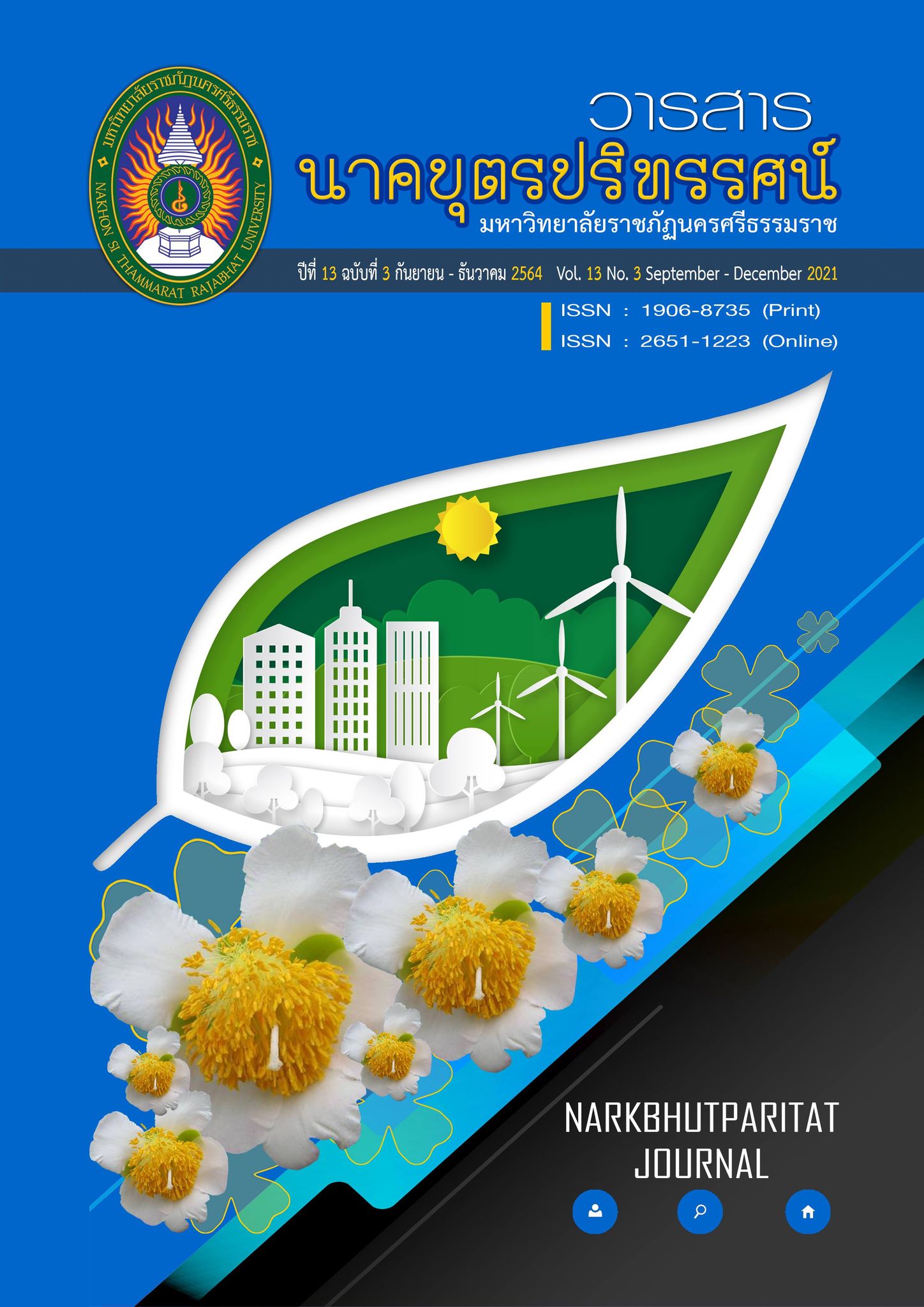The Roles of School Administrators in Anti-corruption in Private School Teachers under The Krabi Provincial Educational Office
Main Article Content
Abstract
The purposes of this research were to 1) study the roles of school administrators in fighting corruption in private school teachers, 2) compare the roles of school administrators in fighting corruption varied by gender, age, professional experience and school size in private school teachers and, 3) explore the problems and suggestions about the roles of school administrators in fighting corruption in private school teachers. The samples were 1,200 teachers under the Krabi Provincial Education Office in the Academic Year 2019. The research instrument was a survey questionnaire. The results were as follows: 1) The roles of school administrators in fighting corruption in private school teachers were at high levels in all aspects. 2) The attitude of teachers, the roles of school administrators in fighting corruption were varied by gender, age, professional experience and school size, and were statistically significantly different at the level of .05. 3) Problems and suggestions about the roles of school administrators in fighting corruption in the perception of private school teachers, school administrators should not exploit public interest to their personal benefits in order to encourage the full development in the educational institutes efficiently.
Article Details
References
Bawoncha, D. (2017). Corruption and Misconduct Prevention among Police Officers, A Case Study at the Police Station Level. Bangkok: National Research Council of Thailand (NRCT). (in Thai)
Chantraniph, P. (2016). Development of Corruption Prevention in Government Agencies for Good Governance in Thai Society. Kasem Bandit Journal. 16(1), 41-52. (in Thai)
Chokhuankul, K. (2018). Guidelines for Creating Values Against All Forms of Corruption for Adolescents in Nakhon Ratchasima Province. Journal of Local Governance and Innovation. 2(3), 43-54. (in Thai)
Ekakul, T. (2000). Research Methodology in Social and Behavioral Sciences. Ubon Ratchathani: Ubon Ratchathani Rajabhat Institute. (in Thai)
Ekphatthara, L. (2015). Problems and Difficulties in Drug Prevention and Suppression Operations of Police Officers in Pathum Thani Province. Political Science Program in Politics and Government, Thammasat University. (in Thai)
Jomyut, B. (2019). Global Society. Retrieved 2019, September 20, from https://www.baanjomyut.com/library_4/global_society/02_2.html. (in Thai)
Ministry of Education. (2019). Moral Promotion Action Plan of Ministry of Education Fiscal Year 2018. Retrieved 2019, September 20, from https://www.acc.moe.go.th. (in Thai)
Phonthong, R. (2016). Implementation Result of Drug Prevention and Suppression Policy in Pathum Thani Province. Valaya Alongkorn Review, 6(2): 41-53. (in Thai)
Rujiranukul, J et al. (2019). Multilevel Causal Factors Affecting Educational Corruption of Students in the Secondary Schools in Eastern Thailand. Rajabhat Rambhai Barni Research Journal. 13(1), 157-168. (in Thai)
Thai National Strategy. (2017). National Anti-Corruption Strategy Phase 4 (B.E. 2560-2564). Retrieved 2019, September 2, from https://www.nesdb.go.th/download/document20-64).pdf. (in Thai)
Wanichbancha, K. (2011). Statistics (6th. ed.). Bangkok: Chulalongkorn University Printing House. (in Thai)


